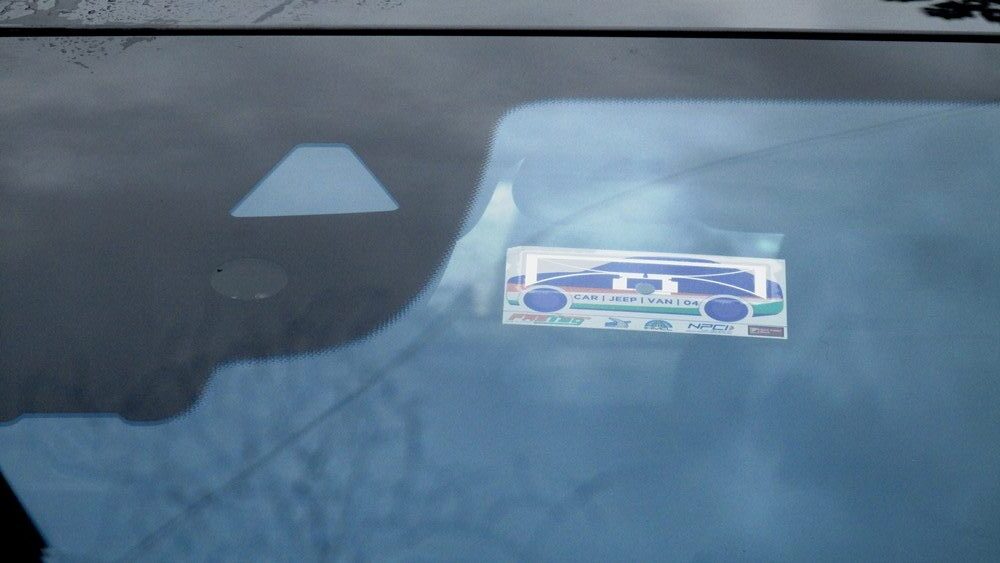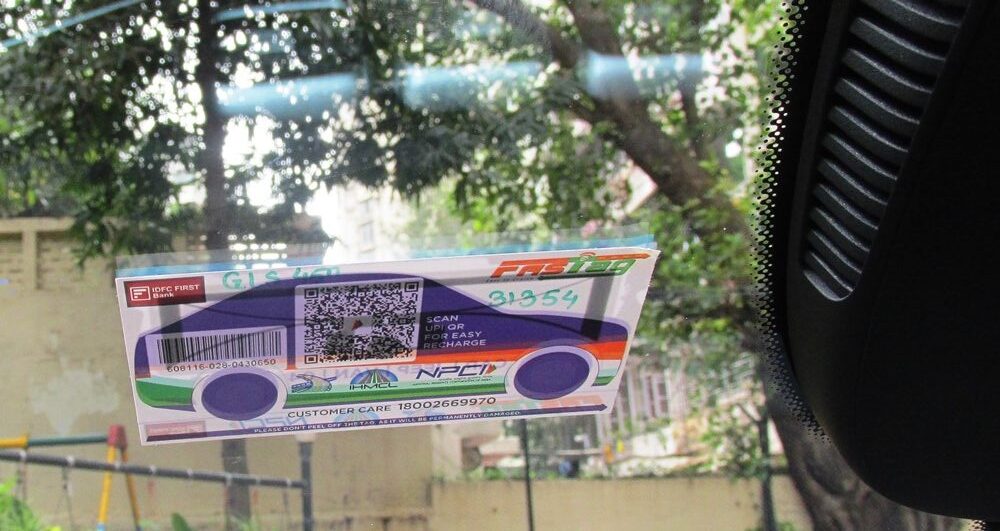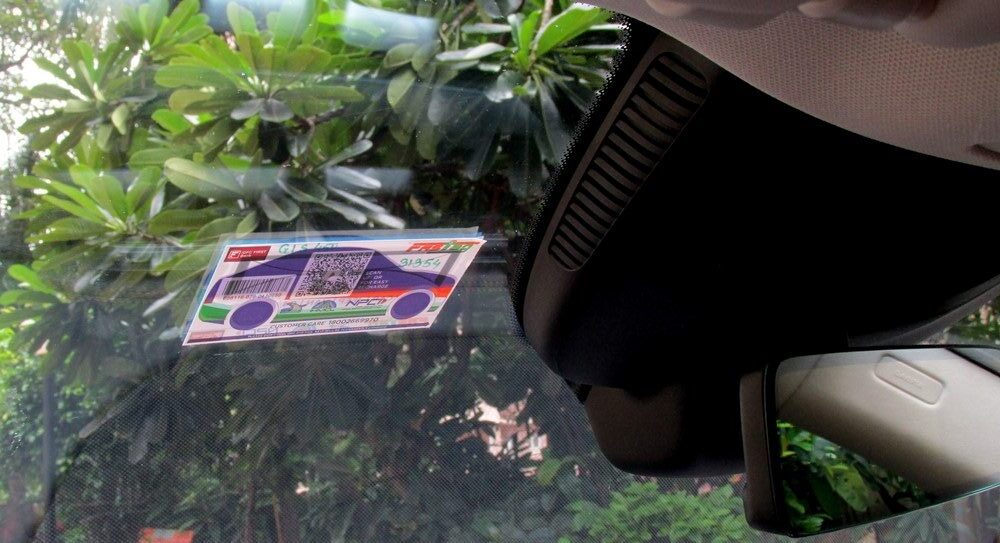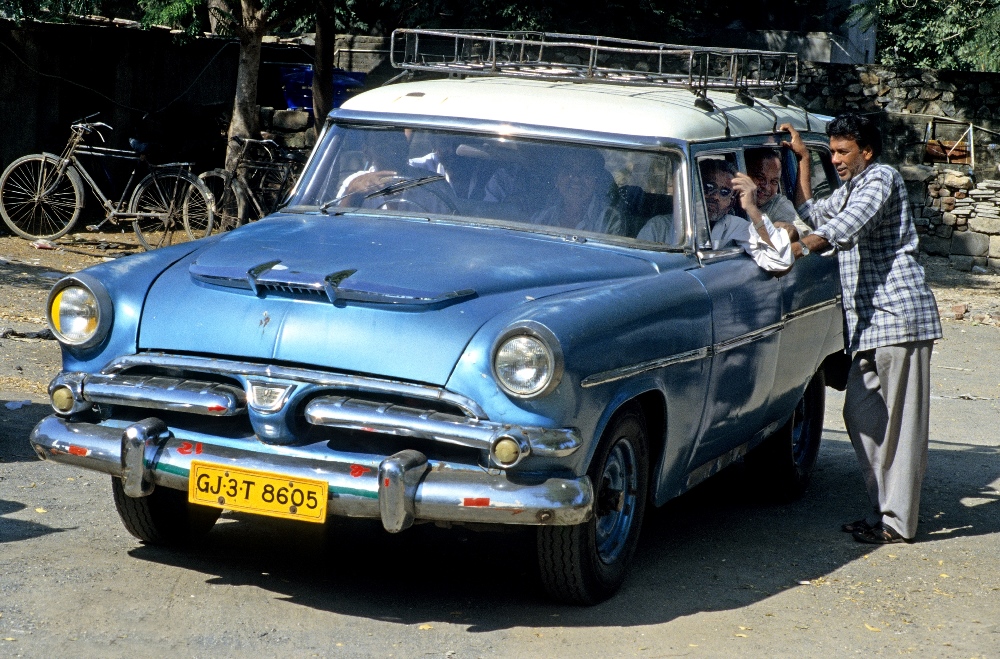And its link to the “Permeable Areas” on a Mercedes-Benz windscreen. If it piques your curiosity like it did mine, then read on for some interesting findings.
Published
September 26, 2025
Not long back, while driving on the Mumbai Pune Expressway in a new Mercedes-Benz GLS 450 d, I discovered something. Something rather interesting. It was when I came to the toll booth. The Merc had a proper Fastag placed prominently to the left of the inside rear view mirror. It was clearly visible and had more than adequate balance. But the RFID (Radio Frequency Identification) scanner installed at the toll booth could just not detect the Fastag. It had taken less than a second to read the Fastag and raise the barrier for the car in front of me. But it was not happening with the Merc I was in.

So a toll booth attendant walked up to the GLS with a handheld portable scanner and put it on the windscreen, right in front of the Fastag. But this scanner also failed to detect it. I wondered what was wrong. Then the attendant tapped on the front passenger window and gestured that I should roll it down. I did this with some trepidation, as I don’t like strangers asking me to roll down a window, especially on a highway.

The attendant reached in and the moment he pointed the scanner at the Fastag, it was detected instantaneously. The toll amount was deducted and the barrier rose to let me through. But the thought stayed with me. Why was the Fastag not detected by external scanners? This does happen occasionally if the scanner is not fitted properly or the windscreen is dirty, or if there is any other glitch. At such times the attendants use a hand held scanner and this normally works and detects the Fastag. But it had not happened in my case. Why? What was the mystery? Having grown up reading Enid Blyton with the Famous Five, Secret Seven, and also Hardy Boys and so on, I simply love solving mysteries. As a matter of fact even today, Sherlock Holmes remains one of my favourite literary and cinematic characters. And now I knew I had to solve the “Mystery of the Invisible Fastag”.

Before I could really decipher the problem and draw any conclusions, I reached the second toll booth and the same thing happened. The installed scanner which was working perfectly well with other vehicles could not detect my Fastag. Here there was a lady attendant who too came towards the Merc with a hand held scanner. But there was a difference. She did not even bother holding it against the windscreen like the attendant at the previous toll booth. Instead, she came directly to the passenger side, asked me to roll down the window, and confidently pointed the scanner at the Fastag knowing fully well that this would work. And it did. I straightaway asked her why she had not put the scanner against the outside of the windscreen and how she knew that the scanner would read only from the inside. She gave me an all-knowing and what I thought was a somewhat sarcastic smile and said, “Sir you are in a Mercedes. And these are expensive luxury cars that are used by famous film stars and rich businessmen (she emphasized this in a manner that made it clear she knew I did not belong to either category) and they have extremely thick windscreens to protect the owners and occupants from any harm. And it is because of these thick windscreens that the Fastag cannot be detected through the safety glass. You have to put the scanner inside where there is no glass between the Fastag and the scanner. I know because I have done this before”.

She had given me an invaluable clue and a lead that I could certainly follow to solve the “Mystery of the Invisible Fastag”. After returning home, I began doing some research on the windscreens of Mercedes-Benz’s and why a Fastag with Radio Frequency Identification (RFID) technology could not be detected by the installed scanner. And as mentioned, the findings were very interesting.

I learnt that most modern Mercedes-Benz vehicles come with an infrared-reflective (IR) windscreen to reduce interior heat buildup and prevent the cabin from getting unduly hot. This also improves the effectiveness of the air-conditioning system. This is an integrated feature, not a film, and works by filtering out infrared waves from sunlight while allowing light to pass through. Yes, this IR coating only filters out the hot infrared waves from sunlight, and as the glass remains transparent and allows in light, it does not in any way affect the vision of a driver, like a dark tint would. Very interestingly, this same IR coating can also block radio waves. The same kind of radio waves that our Fastag’s with Radio Frequency Identification use for communication between the scanner and tag. No wonder the Fastag fitted on the Mercedes-Benz GLS 450 d I had been driving was unable to connect or communicate with the scanner.

So what is the solution? Mercedes-Benz being the perfectionists and engineering maestros they are, have obviously devised one. And it is what is known as the “Permeable Area”. Yes, the “Permeable Areas” on a Mercedes-Benz windscreen are specially designated zones designed to allow radio waves to pass through, typically for toll transponders like our own Fastag system. These infrared coating free areas appear as faint, metallic-looking squares or grids on the glass and are best viewed from outside when illuminated by an external light source. But as I discovered, they are not just difficult to photograph, but also view, unless the light is falling perfectly.


These specific designated “Permeable Areas” or openings for radio wave communication are mostly located just to the right of the rear-view mirror or near the centre of the windscreen. And in the GLS 450 I was driving, the Fastag was stuck on the left hand side of the rear view mirror, which meant it was clearly away from the permeable area and the IR-reflecting coating was blocking the radio waves and signals, and it was this that was not allowing the Fastag to function.
While the main mystery had been solved, one remained. Why was the “Permeable Area” in the Mercedes I was driving on the driver’s side? In the few Mercedes-Benz owners’ manuals that I studied online, it always showed the demarcated area as being on the passenger side. Why? Something did not add up. I then realized that this portrayal in the manual was for left hand drive cars, where the passenger sits on the right. But in India we have the steering and driver on the right. So the obvious conclusion is that the Mercedes’s Benz’s being sold or assembled in India come with windscreens that are originally designed for LHD vehicles!

Mercedes obviously make lots of changes for their right hand drive models, but apparently the windscreen is a common one. Normally the windscreen being from a LHD would make no difference at all. And one would never ever even notice this. It’s just that in this case the Fastag on the Mercedes-Benz GLS 450 d I was driving, was fixed on the left hand side, while the “Permeable Area” was on the right. So if you have a Merc that is encountering problems with the Fastag or even if you are going to be buying a new one, you might do well to check if the Fastag has been pasted in the designated “Permeable Area”.

One other huge learning from this entire incident is about the exceptional brand image of Mercedes-Benz. Just imagine coming across a lady toll booth attendant (who in all likelihood has never even been inside a Merc) having the firm belief that it’s a car that comes with a thicker windscreen for the safety of its occupants. Now that is some brand image. And all compliments to Mercedes for having achieved this status of being seen as a car that cares for the safety of its occupants, by even those that cannot aspire to own one.
Bob Rupani is a born car lover and avid automobile enthusiast who has spent some of the best times of his life behind the steering wheel.
BOB RUPANI
Latest POSTS
January 30, 2026
January 10, 2026
December 27, 2025
December 23, 2025
December 11, 2025
No posts found





